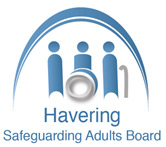Organisational abuse
Organisational or institutional abuse is the mistreatment of people typically in their workplace brought about by poor or inadequate care or support, or systematic poor practice that affects the whole care setting. It occurs when the individual’s wishes and needs are sacrificed for the smooth running of a group, service or organisation.
Why does it happen?
In formal settings organisational or institutional abuse is more likely to occur where staff are:
- inadequately trained
- poorly supervised
- not supported by management
- have poor communication skills
- part of a ‘closed’ culture, for example a care setting where new ideas, visitors, care management or other professional involvement is discouraged
Organisational or institutional abuse can involve more than one abuser, and there might also be a number of people experiencing the same abuse e.g. hate crime against particular groups or several family members mistreating a dependent other.
Examples of organisational or institutional abuse
- failure to respect or support a person or group’s right to independence, dignity or choice
- lack of person centred care planning or a ritualised care routine
- no flexibility in bed times or getting up or deliberately waking someone up
- inappropriate confinement, restraint or restriction
- lack of personal clothing or possessions
- stark living areas, deprived environment or lack of stimulation
- lack of choice in decoration or other aspects of the environment
- lack of choice in food or menus or menu planning
- unnecessary involvement in personal finances by staff or management
- inappropriate use of nursing or medical procedures, e.g. using un-prescribed medication enemas or catheterization
- inappropriate use of power or control
Indicators of organisational or institutional abuse
- treating adults like children
- arbitrary decision making by staff group, service or organisation
- strict, regimented or inflexible routines or schedules for daily activities such as meal times, bed / awakening times, bathing / washing, going to the toilet
- lack of choice or options with food and drink, dress, possessions, daily and social activities
- lack of privacy, dignity, choice or respect for people as individuals
- unsafe or unhygienic environment
- lack of provision for dress, diet or religious observance in accordance with an individual’s belief or cultural background
- withdrawing people from individually valued community or family contact.
If you are concerned about an adult suffering from organisational abuse
The Safeguarding Adults Board’s objective is to protect vulnerable adults at risk from abuse in Havering.
Adult Social Services Safeguarding Adults Team
Telephone: 01708 433550
Fax: 01708 432497
Email: safeguarding_adults_team@havering.gov.uk
If there is immediate risk of serious harm then call the Police – Dial 999.
